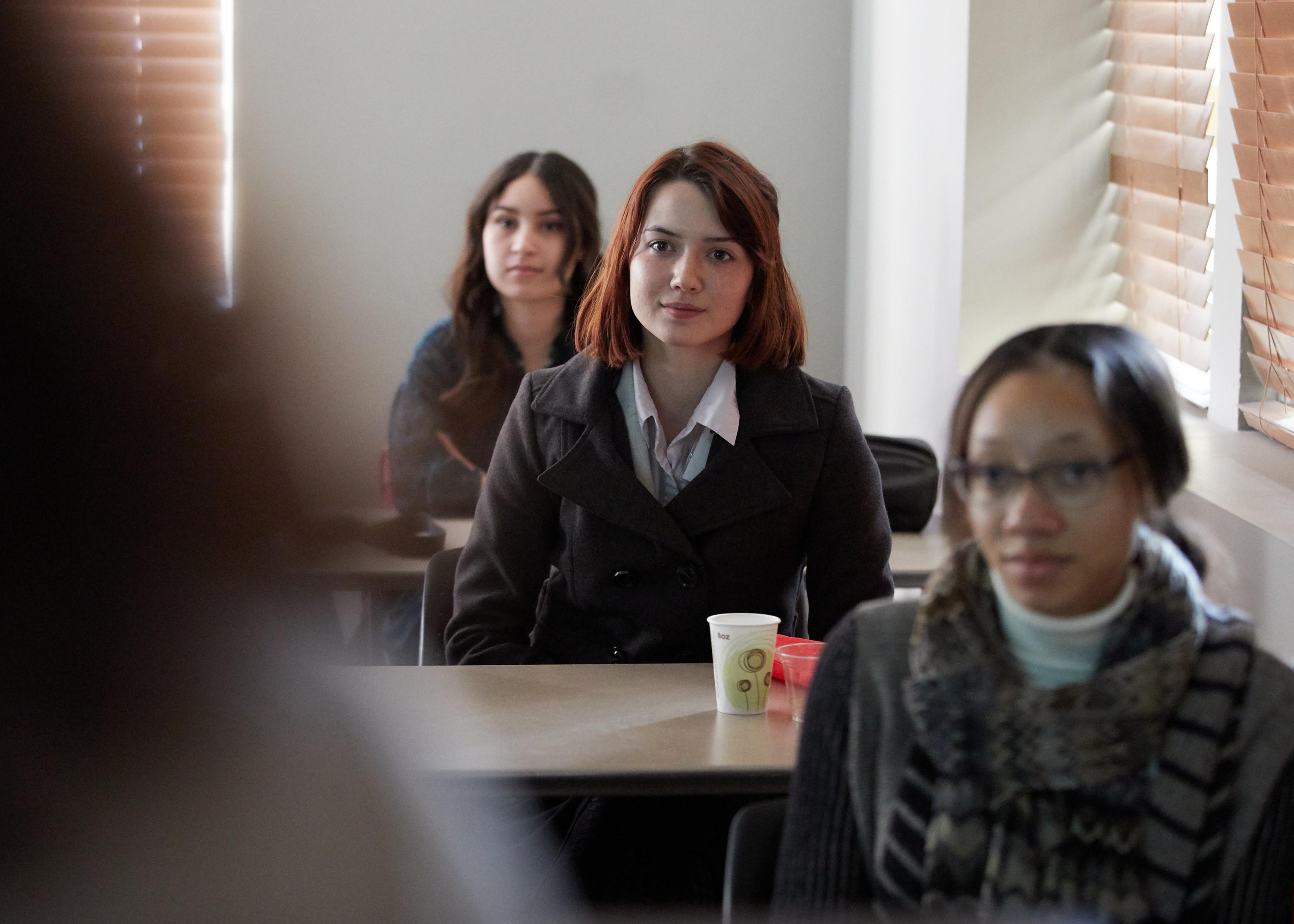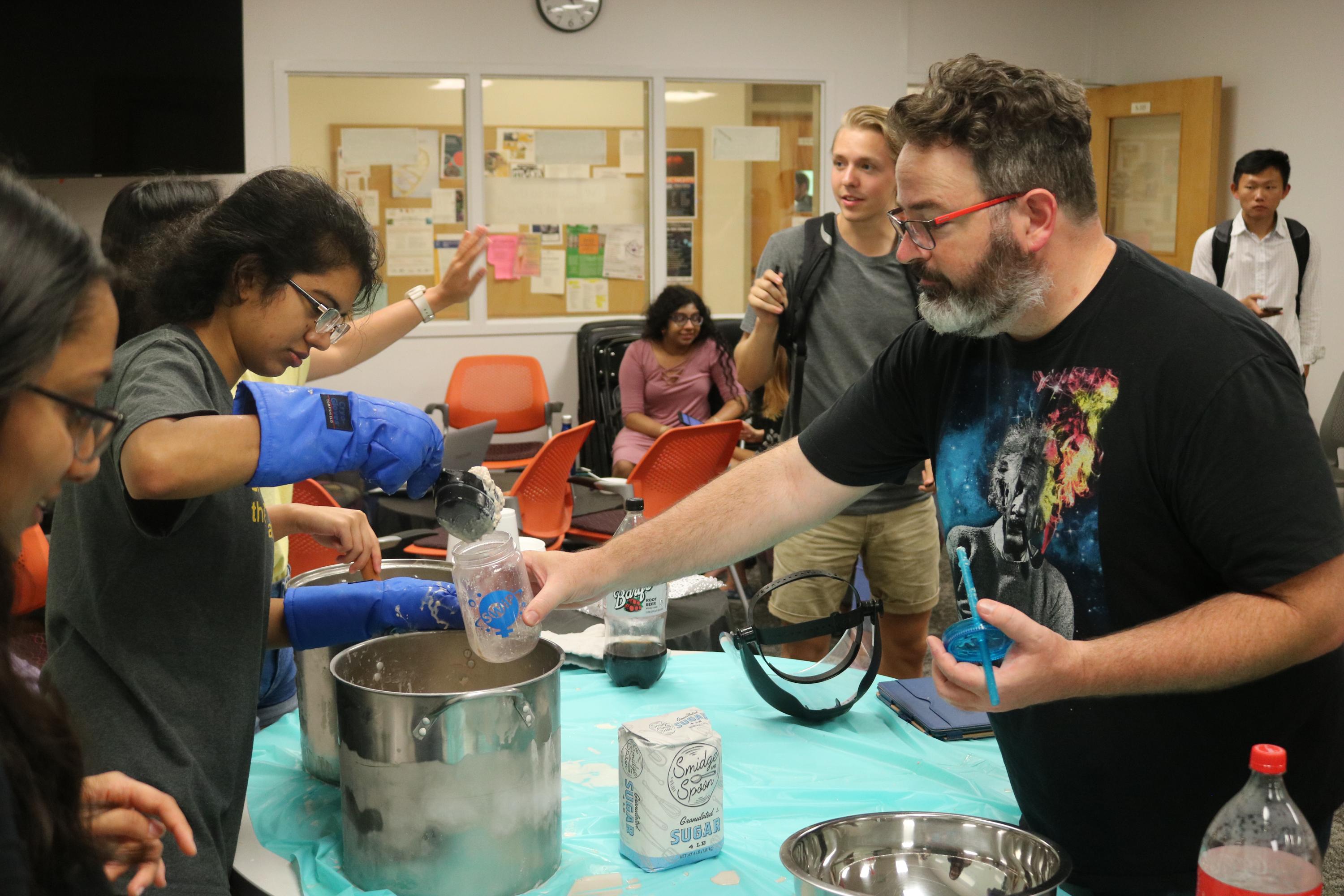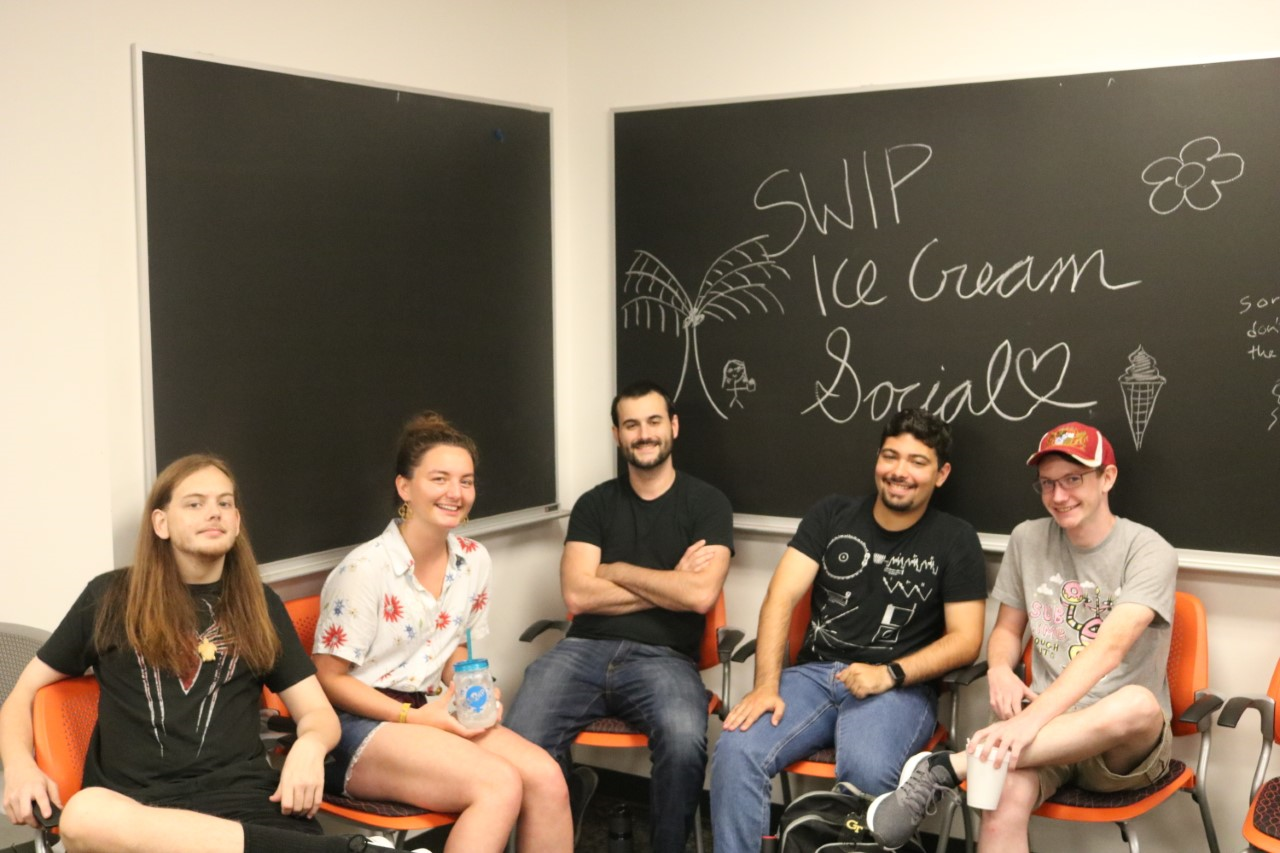Every year on March 8, people across the world celebrate International Women’s Day. The day encourages all people, regardless of gender, to reflect on the important women leaders and mentors in their lives and act to support women and girls.
At Georgia Tech, the Society of Women in Physics (SWIP) embodies the empowering characteristics of International Women’s Day. Through the club, women, men, and non-binary scientists are encouraged to share their ideas and build relationships that provide support inside and outside of academic settings.
“You have people to go to if you need something, and you know the people who are grading your tests, and it makes the entire environment a little less intimidating,” said third-year neuroscience student and SWIP president Ryn Mykyten.
Connecting Across Communities
The club organizes regular events to encourage networking and learning. One such event is Coffee and Conversations, where members come together to discuss relevant physics topics while enjoying doughnuts and a cup of coffee. At a recent Coffee and Conversations, the group discussed predatory journals and for-profit conferences, which Mykyten said are “things that researchers should know about if they’re going to be in physics.”
SWIP also attends conferences inside and outside of Georgia to connect with other SWIP organizations and learn about new research and hot topics in science. Recently SWIP attended the Conference of Undergraduate Women in Physics, where they learned about science research and received advice beyond academics.
“One panel that we were at for balancing work and life was awesome,” said fourth-year physics major and SWIP vice president Jessica Eskew. The panel specifically discussed how to work while raising a child. “If you’re trying to do a science route, it’s hard to imagine how you’re going to work if you’re going to have a kid in the future. To learn about how to manage your time and talk with other women in physics that are older with you is really important.”
Fostering Supportive Environments
Eskew believes that discussing topics like these makes pursuing a career in science less intimidating and fosters a supportive environment. And for Mykyten, who switched her major from physics to neuroscience, these topics are important for improving the physics environment for future women physicists.
“Part of the reason why I dropped physics is part of the reason why I’m so involved with the Society of Women in Physics,” said Mykyten. “Because I kind of want to improve the atmosphere that I wasn’t comfortable in to begin with.”
In fact, through her participation in SWIP, Mykyten met a faculty mentor, Jennifer Curtis, who she now conducts research with.
One of the ways Eskew has found support in her physics career is by connecting with female faculty, who she finds are open to creative approaches to assignments and are especially understanding of unique circumstances.
“They’re open to listening to what you have going on in your life and making sure that you’re not just learning to the best ability that you can, but also living your life to the best that you can,” said Eskew. She credits her research advisor Laura Cadonati for "making sure my course load isn’t too much,” professor Claire Berger for emotional support, and professor Tamara Bogdanović for encouraging creativity in the classroom.
And, as a transfer student, Eskew also appreciates how well Georgia Tech as a whole supports women in science. She says that when her grandfather attended Georgia Tech, the student body was entirely composed of men. In fall 2017, women made up 43 percent of Georgia Tech's first-year class.
“There’s been a long history of Georgia Tech actively looking to support women,” said Eskew. “I’ve had some really great opportunities, experiences and met so many nice people here.”
Mentorship Matters
On International Women’s Day, Eskew reflects on the many female mentors that encouraged her to pursue a career in sciences. Furthermore, she looks for ways that she can also be a mentor for younger girls that need exposure to women in science.
During a research project, Eskew explored the early education of younger girls in science, and whether that education was conducive of future scientific exploration.
“What I found through my research is that they don’t have a strong female figure to look up to,” said Eskew. “When they think of a physicist, they think of Einstein, an old man with a white beard, white hair, in a lab coat.”
Eskew believes that International Women’s Day is the perfect opportunity to elevate female scientists so that young girls have mentors that they can relate to. It’s by combining impressive scientific research and an emotionally supportive atmosphere, she says, that women across the scientific world will be able to grow and thrive.
Related Links:
Conversations with Cabrera: College of Sciences Dean Susan Lozier
A History of Women at Georgia Tech Since 1917
Georgia Tech Society of Women in Physics
Georgia Tech Center for the Study of Women, Science and Technology
Related Events:
2020 Women's Action Month Programs with Georgia Tech Women's Resource Center
Save the date: April 9 is the 2020 WST Distinguished Lecture with Georgia Tech Center for the Study of Women, Science and Technology (WST) and the College of Sciences
By Grace Pietkiewicz, First-Year Student, School of Literature, Media, and Communication
For More Information Contact
Grace Pietkiewicz
Communications Assistant
College of Sciences
Georgia Institute of Technology
katiegracepz@gatech.edu





